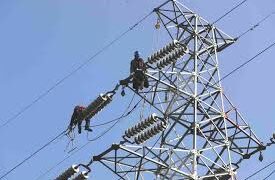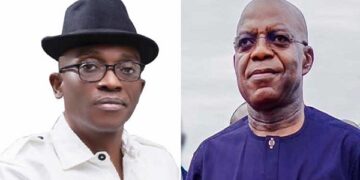By Eshiorameh Sebastian
Africa is, again, at a dangerous crossroads. While some nations struggle to strengthen their democracies, others are sliding back into military rule, and what is most alarming is how this regression is being packaged and sold as progress.
Recent reports have revealed that Burkina Faso’s military leader, Captain Ibrahim Traoré, has allegedly recruited Nigerian social media influencers in a lavish PR campaign to whitewash his dictatorship. If this is true as confirmed by one of African most influential social media activists, Deji Adeyanju, in a recent post on his social media handle, it is nothing less than an assault on the very idea of freedom in Africa. It means some of Nigeria’s most influential voices, people with the power to shape opinions across the continent, are being paid to justify tyranny.
The gravity of this situation cannot be overstated. Nigeria, as Africa’s most populous democracy and largest economy, has historically positioned itself as a bastion of democratic values in West Africa. The revelation that Nigerian influencers, individuals with massive followings across the continent, may be accepting payments to promote and legitimize military rule in neighbouring countries represents nothing short of a crisis of conscience for our nation. Even more disturbing are reports that some Nigerian protesters recently attempted to organize rallies in support of Burkina Faso’s military regime, a move that was fortunately intercepted by Nigerian authorities. These developments suggest a coordinated effort to undermine democratic norms not just in Burkina Faso, but across the region.
Africa’s tragic history with military governance provides ample evidence of its destructive consequences. The 20th century presented us with one brutal military regime after another- from Mobutu Sese Seko’s kleptocracy in Zaire to Sani Abacha’s reign of terror in Nigeria, and Idi Amin’s murderous dictatorship in Uganda. Each of these regimes began with lofty promises of restoring order and fighting corruption, yet all descended into varying degrees of oppression, economic mismanagement, and human rights abuses. The painful irony is that today’s new generation of military leaders are employing the same tired rhetoric while adding a modern twist – sophisticated propaganda campaigns designed for the social media age.
In Burkina Faso, Captain Traoré’s 2022 coup was justified as necessary to address the country’s security challenges. However, nearly two years later, the security situation has deteriorated significantly, with jihadist attacks increasing by 23% since the military took power according to ACLED data.
Even at that, the regime appears more concerned with managing perceptions. The alleged recruitment of Nigerian influencers forms part of a broader strategy to portray military rule as effective and popular, despite overwhelming evidence to the contrary. This isn’t just about Burkina Faso, it is about establishing a dangerous precedent where any military officer can overthrow an elected government, then hire social media mercenaries to rebrand their power grab as a “popular revolution.”
Nigeria boasts some of Africa’s most influential social media personalities – individuals who have built massive followings by positioning themselves as voices of the people. Many rose to prominence by criticising government failures, exposing corruption, and demanding accountability from public officials. The bitter irony that these same influencers may now be accepting payments to promote dictatorship in neighboring countries represents a huge betrayal of public trust.
The modus operandi appears frighteningly simple: military regimes identify influential Nigerian social media personalities with large African followings, offer them lucrative contracts, and provide them with carefully crafted talking points designed to portray dictatorship as strong leadership and democratic governance as weak and ineffective. Some influencers have already begun testing these narratives, posting content that suggests military rule might be “what Africa needs” to solve its security and development challenges.
When confronted, these influencers will likely offer the usual excuses: “It’s just business,” “I’m entitled to my opinion,” or the particularly disingenuous “I’m just asking questions.” These deflections cannot be allowed to stand. Social media influence cannot be seen as a game – it should be seen as a form of power that carries real-world consequences. When influencers with millions of followers begin normalising for military rule, they are not merely expressing personal views; they are actively shaping political discourse in ways that can lead to disastrous outcomes. Their actions could potentially inspire copycat coups across the region, destabilising fragile democracies and setting back Africa’s development by decades.
The potential consequences of this influencer-backed propaganda campaign extend far beyond Burkina Faso’s borders. Africa’s democratic institutions remain fragile in many countries, and the West African subregion has suffered five successful coups since 2020- in Mali (twice), Burkina Faso (twice), and Niger. Each time, the pattern repeats: military officers cite security challenges and governance failures as justification for overthrowing elected governments, then proceed to govern no better – and often worse – than their civilian predecessors.
If Nigerian influencers – who claim to be champions of democracy in their country and who should ideally be champions of democratic values, begin legitimising these power grabs, the damage to Africa’s democratic prospects could be catastrophic. We risk entering a vicious cycle where:
Democratic norms become eroded as military rule is rebranded as an acceptable alternative to civilian governance; Public dissent is increasingly suppressed under the guise of maintaining “national unity” against external threats; Nigeria’s credibility as a democratic leader in Africa is irreparably damaged; the sacrifices of pro-democracy activists across Africa are betrayed and forgotten
Perhaps most tragically, this trend threatens to undo decades of democratic progress across the continent. From the activists who fought against apartheid in South Africa to those who resisted military rule in Nigeria during the 1980s and 90s, generations of Africans have sacrificed and even died for the right to choose their leaders. To have that legacy undermined by paid social media posts represents an insult to their memory and sacrifices made by heroes of democray.
The recent intervention by Nigerian authorities to stop pro-Traoré protests in the country demonstrates that our government recognises the threat posed by these developments. However, more decisive action is urgently needed. The Nigerian government must: Immediately launch a thorough investigation into these allegations of Nigerian influencers being recruited to promote military rule in Burkina Faso. Work with social media platforms to identify and expose any coordinated inauthentic behavior or state-backed influence operations. Prosecute any Nigerian citizens found to be knowingly engaged in activities that undermine democratic governance in other African nations. Strengthen laws against foreign interference in Nigeria’s political processes, including provisions against Nigerians acting as agents of foreign authoritarian regimes. Collaborate with ECOWAS and the African Union to establish continent-wide standards against the use of propaganda to legitimize unconstitutional changes of government
The government’s swift action in stopping the pro-Traoré protests was commendable, but it cannot be a one-off response. We need a comprehensive strategy to counter this new form of digital authoritarianism that threatens to destabilise our region. Nigeria’s security and intelligence agencies must treat this matter with the seriousness it deserves – as a national security issue that could ultimately threaten stability within our own borders.
Nigeria will we be remembered as the nation that stood firm for democracy when others wavered. Or will we go down in history as the country that provided the digital mercenaries used to undermine freedom across Africa? The choice couldn’t be clearer.
Our nation knows firsthand the horrors of military rule – the midnight knocks on doors, the silenced dissent, the stolen futures. To now have Nigerians potentially profiting from the imposition of similar suffering on others is morally reprehensible. Military rule doesn’t solve Africa’s problems; it exacerbates them while crushing the fundamental rights of citizens. Those who lend their voices to promote dictatorship, whether for money or misguided ideology, are complicit in this oppression.









































Discussion about this post